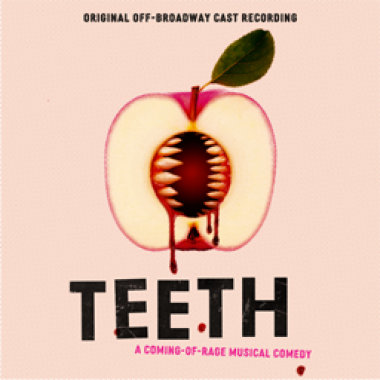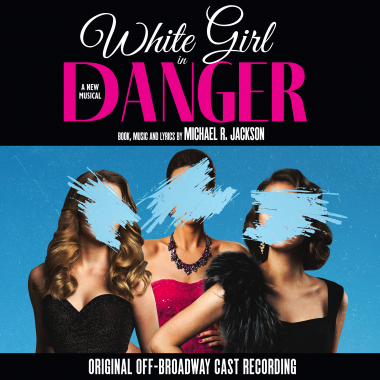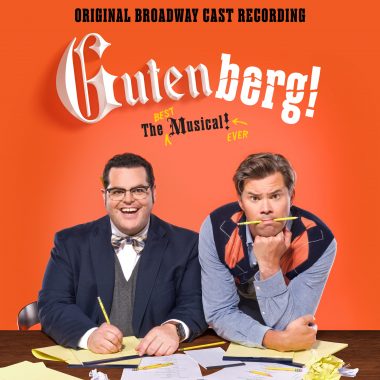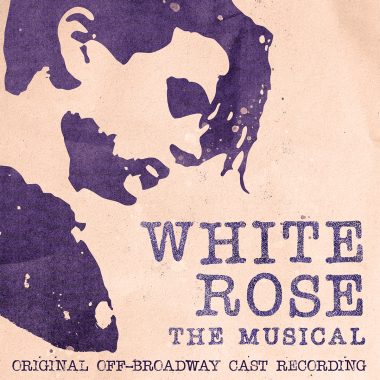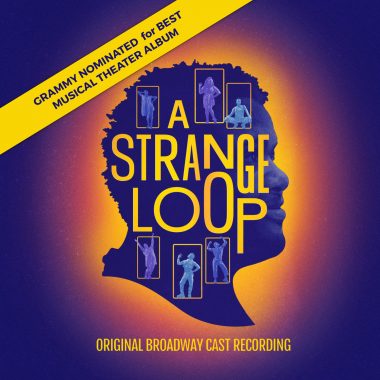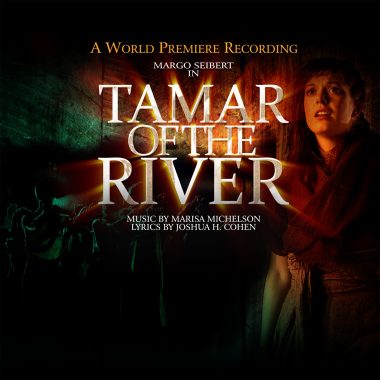
Tamar Of The River – World Premiere Recording
I first encountered Marisa’s music in 2010. I was a reader for the Jonathan Larson Grant, an award given to new musical theatre artists; I had won the year before, and so now was entrusted with the job of reviewing a stack of the current year’s applicants. I sat excitedly in my small room in a Brooklyn apartment with 20 manila envelopes, stuffed with scripts, synopses, resumes, and CDs that presumably were representative of the current state of emerging musical theater. However, as I went through application after application, my ears started to weary; so much of the music sounded the same, adhering to a very strict and cookie-cutter predictable vision of what “musical theater” should be. And then I got to Tamar.
Tamar and the River is piece of musical theater, but the musical theater traditions it draws on are vast and positively cosmic, in every sense of the word; aspects of Jewish liturgical music, Islamic azans, European opera, jazz harmonies, African-American gospel, Japanese Noh singing, Balinese monkey chant, Balkan timbres, Pendereckian tone clusters, and Meredith Monkian extended vocal techniques all are kneaded together into something that simultaneously sounds like it came from 7000 years ago and some distant and improbable quantum future. At the center of it all is the voice, the oldest and most spiritual instrument, employed here to tell a story both through Joshua Cohen’s evocative and myth-soaked text and through pure sound: breathes, moans, cries, screams, yawps and a number of other indescribable moments of pure spirit transformed into aural experience.
It is telling that Marisa has a fraught relationship with written scores; much of this music was composed and rehearsed orally, the composer working closely with the performers, using her own voice to communicate rather than a restrictive system of written notation. Probably my favorite piece on the album is the wordless “Prayer Reprise,” 90 seconds of evocative subtleties that couldn’t possibly be notated; and yet every swell, waver and inhale seems to flow from the performers as a cohesive whole, saying volumes about sorrow and suffering. This piece features Marisa herself on vocals, improvising with Margot Bassett, an enchantingly ethereal singer whose close, muse-like collaboration with Marisa from the earliest days of the project led to the creation of her role, River Angel, the lead voice in many of the stunning River Chorus sections. This chorus—from its nebulous pre-Genesis opening and first joyous “Hey-ey!” in “In the Lost Days” (which to my ear sounds both like a Balkan funeral wail and a Beyoncé call-to-dance) to its final angelic moment—is the core of the show, acting as a unique architectural frame and creating a singular timbre that separates Tamar from just about anything that’s come before it. Other moments of River singing defy rational description, and yet communicate effortlessly: the bizarre dissonant nursery rhyme of “Where I Stand”; the Ravel-like “Ah”s in “Traveling”; the terrifying opening of “Lament.”
And of course the leads are equally astonishing; at the center is Margo Seibert as Tamar, in a perfect performance that defies categorization, her pure voice transcending genre and becoming something otherworldy. Tamar is a wonderfully complex character, Josh’s book and lyrics painting her as full of passion, sorrow, bravery, and righteousness, but also Biblical confusion and paradox. All of this is manifested musically in her recurring descending vocal motif, animpossible-sounding cascade down an unusual modal scale that sounds like an archaeological discovery. Her duet with Ako, “Go,” is another highlight, Ako’smysteriously ancient timbre mixing with Margo’s through a breathlessly thrilling melody, culminating in an utterly weird and dazzling Marisa moment, their final note slowly decaying and collapsing into dissonance.
Then men too are phenomenal; Erik Lochtefeld’s Judah is a perfect foil for Tamar, similarly controlled by inexplicable Biblical forces but maintaining a steadfast conviction. Vince Vincent is a chameleon; “Doors” is a delightful quasi-lullaby, heartbreakingly awkward and fragile, with just a glimpse of the hidden strength and stirring nobility that explodes in his “Building My House,” which has the best hook on the album (“And the water water water flows!”). And Mike Longo’s “Light the World” and “It Was You” seamlessly introduces another timbre to the score, his soulful and barn-burning tenor rousing the River into a joyous cacophony
And then there’s the orchestration, comprised of aching string lines, haunted vibraphones (reminiscent of both Tibetan singing bowls and Steve Reich) and a rich pallet of African, Arabic, and Latin percussion, djembe, dumbek, and conga laying down infectious grooves which again harken back to a number of ancient spiritual musical traditions. This mix of Eastern and Western instruments and musical styles ultimately is the strongest endorsement for the peace and co-existence Tamar seeks throughout the show; why continue fighting when the fusion of cultures can create something so sublime. In the final moments of the show, Josh’s simple lyrics sound like a lost Bible verse, as the River sings “It will come/Peace will come/Time will ebb/Time will flow,” accompanied by hand drums in a culturally unplaceable ostinato, before devolving into a final transcendent moment of wordless ecstasy. Would that it were so, that peace might come so we may hear the sounds of singing and drumming overcome those of rocket fire and mortar blasts in our lifetime.
After listening to that lo-fi bootleg recording of Tamar on my computer 4 years ago, I sneakily googled the anonymous application, just to find out who Marisa was. I was delighted to learn that we had enough mutual friends that I could email her without seeming too much like an utterly creepy fanboy. I did, and we became friends; and now I’m thrilled to be listening to the culmination of Marisa’s journey down the river, this astounding recording that documents one of the most original voices working in music and theater today.
-Dave Malloy, composer, Natasha, Pierre & The Great Comet of 1812
BUY NOW